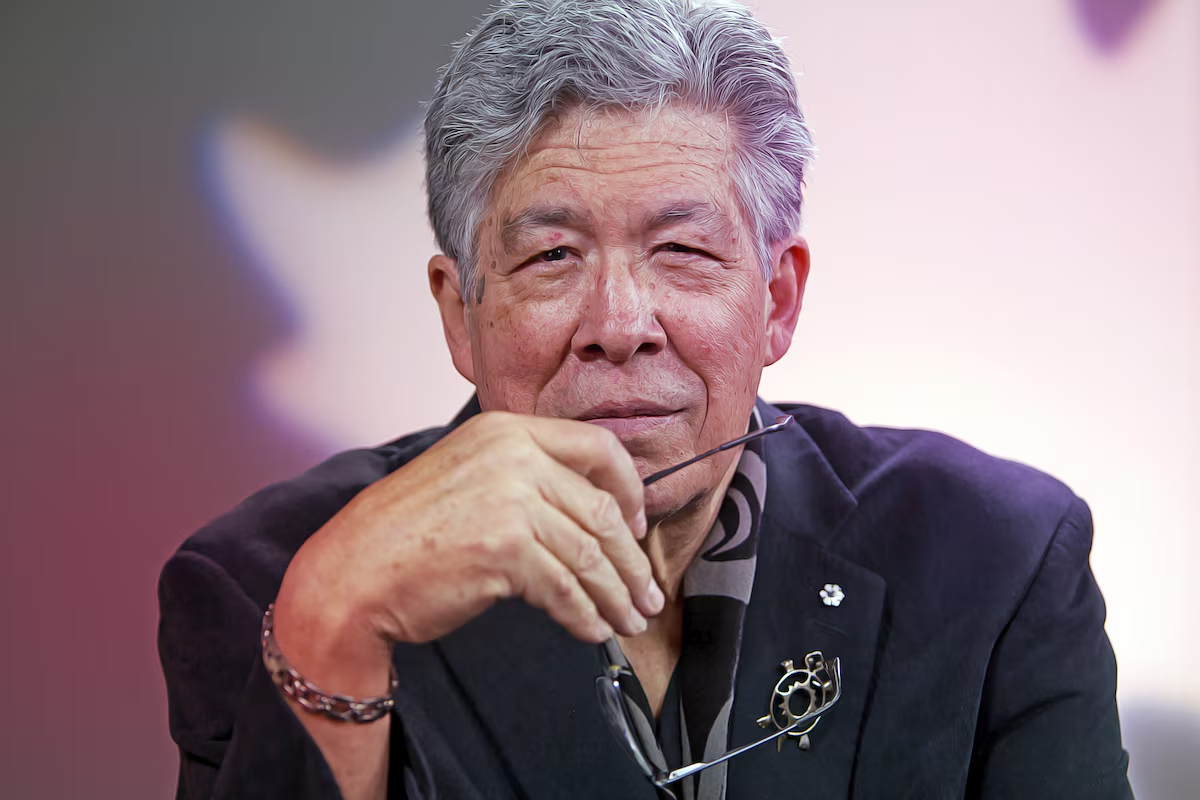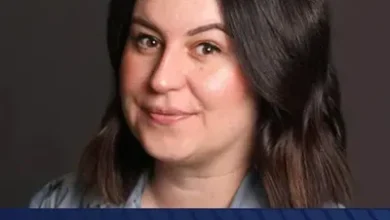Inconvenient Indian author Thomas King says he is not part Cherokee

Open this photo in gallery:
California-born writer Thomas King, seen in 2014, has lived in Canada since 1980, when he came to Alberta to teach Indigenous studies at the University of Lethbridge.Peter Power/The Globe and Mail
Thomas King, the award-winning Canadian-American author of such books as the 2020 novel Indians on Vacation and 2012’s The Inconvenient Indian: A Curious Account of Native People in North America, is not part Cherokee, as he long assumed himself to be.
In an exclusive interview with The Globe and Mail, the 82-year-old writer said he learned he was not Indigenous when he met recently with the Tribal Alliance Against Frauds, a whistle-blowing organization based in North Carolina that is dedicated to exposing false claims of Native American heritage.
“I’m still in shock,” Mr. King said, speaking from his home in Guelph, Ont.
Thomas King: All my life, I believed I was Indigenous. Now, I must reckon with the inconvenient truth
The California-born writer has lived in Canada since 1980, when he came to Alberta to teach Indigenous studies at the University of Lethbridge. In 2004, he was made a Member of the Order of Canada for demonstrating the power of stories and the vitality of Indigenous culture. In 2020, he was promoted to Companion of the Order of Canada for exposing “the hard truths of the injustices of the Indigenous peoples of North America.”
On Nov. 13, Mr. King participated in a video conference call with TAAF director Lianna Costantino and Daniel Heath Justice, professor of English and critical Indigenous studies at the University of British Columbia and an enrolled Cherokee Nation citizen. Also on the call was a genealogist who had researched Mr. King’s ancestral history.
Mr. King’s father, Robert King, grew up in Oklahoma. As a teenager, Robert discovered that the man who was his father of record, William King, was not his biological father. According to oral family lore, Robert King’s biological father − Thomas King’s grandfather − was actually Elvin Hunt, whom the family believed was of Cherokee ancestry.
But the genealogist working for TAAF presented information that showed there was no Cherokee ancestry on the Hunt side or the King side. Mr. King does not dispute the findings.
“I didn’t know I didn’t have Cherokee on my father’s side of the family until I saw the genealogical evidence,” he said. “As soon as I saw it, I was fairly sure it was accurate. It’s pretty clear.”
Mr. King was raised in central California by his mother’s side of the family, which was Greek American. He says he was 3 when his father abandoned the family. As Mr. King explained it, when he noticed he and his brother were darker skinned than their cousins and he was told by other children that he looked Japanese, he was informed that his grandfather on his father’s side was part Cherokee.
“I couldn’t escape that vision of me as something else,” he said. “I knew what that something else was and began to develop an identity. I didn’t look like the rest of the kids in the neighbourhood. People tried to figure out who I was, but I knew who I was.”
Mr. King said rumours that he was not Cherokee surfaced over the years but that nothing came of them. He admits to not being a “good Indian,” because he didn’t grow up on a reservation or speak the language. “I always had that for people to chew on,” he said. “You don’t go this long in the arts community without making a lot of friends, but also a couple of people who don’t particularly like you.”
Open this photo in gallery:
Mr. King was promoted to Companion of the Order of Canada in 2020 for exposing ‘the hard truths of the injustices of the Indigenous peoples of North America.’Courtesy of TIFF
This year, Mr. King released the wry novel Aliens on the Moon, about space invaders and a small Ontario town. When he wasn’t invited to the Vancouver Writers Fest, he believed it had something to do with the rumour he wasn’t Indigenous. That eventually led him to the source of the rumour, which was the TAAF and its findings.
An opera production by Edmonton Opera and Against the Grain Theatre of Indians on Vacation, based on Mr. King’s novel of the same name, has been cancelled after members of Edmonton’s Indigenous community raised concerns. The opera, composed by Ian Cusson with a libretto by Royce Vavrek, was scheduled to premiere Feb. 5.
“This decision follows conversations with several local Indigenous Elders, Knowledge Keepers, patrons, and community members from Treaty 6 who shared concerns about how presenting this work at this moment would impact their community,” Edmonton Opera said in a statement. “Through these discussions, it became clear that moving forward would not align with our commitments to reconciliation, cultural respect, and responsible partnership.”
Mr. King is not the first prominent Canadian writer or entertainer whose Indigeneity has been questioned. In 2017, author Joseph Boyden came under fire over questions about his heritage after an investigation by the Aboriginal Peoples Television Network.
The APTN story explored but could not confirm his Indigenous heritage. Mr. Boyden, the author of 2005’s Three Day Road, a novel about two Cree soldiers serving in the Canadian military during the First World War, insisted he had never taken grants or other funding intended for Indigenous writers. He stepped back from his role as a spokesperson for the Indigenous community.
In 2025, folk singer Buffy Sainte-Marie was stripped of her Order of Canada and had her Juno Awards and Polaris Music Prizes revoked when it was determined she was not a Canadian citizen after a CBC news report in 2023 that raised suspicion about her long-claimed Cree ancestry.
Ms. Sainte-Marie said on Facebook at the time, “I know who I am.” Later she said she was an American citizen and held a U.S. passport, but that her Canadian Cree family “adopted me forever and this will never change.”
In 2020, controversy over filmmaker Michelle Latimer’s Indigenous heritage included accusations that she had exploited and appropriated Indigenous culture. Ms. Latimer subsequently resigned as director of the CBC Indigenous supernatural drama series Trickster, which she co-created. She told The Globe at the time that she had “made a mistake” in naming Kitigan Zibi, an Algonquin community in western Quebec, as her family’s community before “doing the work to formally verify this linkage.”
Ms. Latimer served the CBC with a notice of libel, but later dropped the defamation lawsuit against the network. In the Globe interview, she asserted her Indigenous heritage, saying she was a “non-status Algonquin of mixed blood, Métis, French-Canadian heritage.” A genealogical investigation she commissioned supported her Indigenous ancestry.
The story hit close to home for Mr. King, whose non-fiction book The Inconvenient Indian was adapted by Ms. Latimer for her 2020 documentary Inconvenient Indian. Asked why Ms. Latimer’s experience didn’t cause him to pro-actively nail down his own Indigenous bona fides, Mr. King said he didn’t think DNA tests were accurate when it came to Indigenous genealogical markers.
Even if the man he believes is his grandfather, Elvin Hunt, was Cherokee − the TAAF says he is not − that unofficial blood relationship would not be enough to establish Cherokee citizenship.
“I was dead in the water,” Mr. King said. “I knew that early on.”
Open this photo in gallery:
Mr. King is presented the Governor General’s Literary Award for fiction by then-Governor-General David Johnston in Ottawa in 2014.PATRICK DOYLE/The Canadian Press
Mr. King’s DreadfulWater mystery series about a Cherokee ex-cop is still going ahead. The ninth book in the series, StarBright, has a planned publication date of May, 2026. The author’s publisher is standing by its writer.
“We have proudly published Thomas King’s fiction and poetry for over 30 years,” Iris Tupholme, senior vice-president and executive publisher of HarperCollins Canada, said in a statement to The Globe.
Mr. King admits that he has received financial grants and other benefits in his career from being seen as Indigenous. The only award he intends to return is the National Aboriginal Achievement Award for arts and culture in 2003.
“The rest of my awards are based on my writing,” he said, “not my ethnicity.”
Mr. King maintains he never deceived anyone about his past. “The thing I hate the most is to be thought that I’m dishonest,” he said.
He is not optimistic when it comes to his future.
“This pretty much means the end of me. It’s a brutal end, and I expect the worst.”





